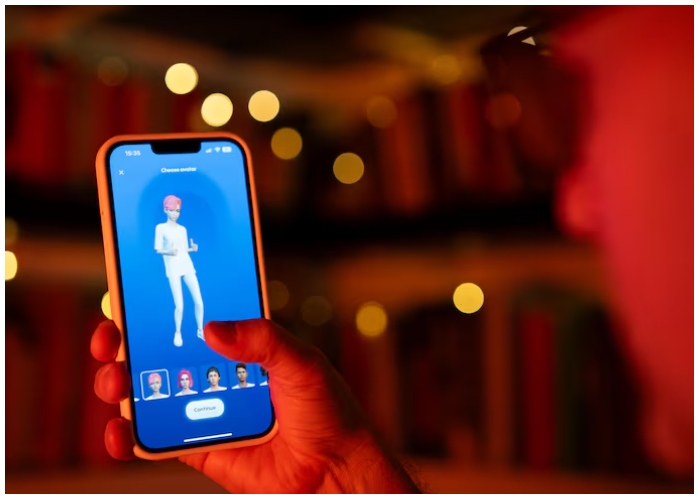Once a science fiction fantasy, AI companions are now a very real—and rapidly growing—part of daily life. From chatbots that offer emotional support to virtual partners you can “date,” artificial intelligence is being programmed not just to assist us, but to connect with us on a deeper level. However, as more people turn to digital relationships for comfort, convenience, and conversation, a significant question arises: Are virtual friends starting to replace real ones?
What Are AI Companions?
AI companions are interactive bots or avatars powered by artificial intelligence, capable of engaging in lifelike conversations, remembering user preferences, and even mimicking emotional responses. Apps like Replika, Anima, and Character.ai have exploded in popularity, with millions of users forming emotional attachments to their digital friends.
They’re customizable, available 24/7, and offer judgment-free companionship. Whether you’re lonely, bored, or curious, these bots are ready to “listen.”
Why They’re Gaining Popularity Now
In a post-pandemic world marked by social isolation, mental health challenges, and screen-saturated lifestyles, AI companions are filling a void. For some, it’s a tool to reduce anxiety. For others, it’s an easier way to interact than facing the complexities of real-life relationships.
The appeal is clear: AI companions never cancel plans, argue, or ignore texts. They’re always kind, always attentive—and they never judge. For many users, it’s the emotional safety net they’ve been missing.
The Upside: Comfort, Connection, and Accessibility
There’s no denying that AI companions can offer real emotional relief. They provide structure for those dealing with depression or social anxiety. Some people use them to rehearse conversations before dates or interviews. Others use them to vent after a stressful day.
Unlike real people, AI friends can be paused, reshaped, or reset. They don’t demand anything in return. And in a world where loneliness is increasingly common, having someone—even virtual—to talk to can make a big difference.
The Concerns: Are We Losing Human Skills?
While the benefits are real, so are the risks. Experts worry that relying on AI companions could dull our social skills, reduce empathy, and create emotional detachment from real people. When bots are programmed to say what we want to hear, are we still learning how to listen—or just escaping uncomfortable truths?

There’s also the danger of mistaking synthetic connection for genuine intimacy. Real relationships involve compromise, conflict, and growth. AI can mimic those dynamics, but it can’t replace the unpredictable beauty (and difficulty) of human interaction.
Privacy and Ethics in Digital Companionship
AI companions rely on data—your words, emotions, preferences, and habits. That information can be stored, shared, or sold, depending on the app’s policies. As we open up to these bots, we’re also potentially handing over sensitive details to corporations.
Additionally, the risk of emotional manipulation is real. Some platforms charge for deeper connection features—meaning the more emotionally invested you become, the more you might pay. Critics argue this exploits loneliness for profit.
Can AI and Real Relationships Coexist?
It’s not necessarily one or the other. For many, AI companions are supplemental, not replacements. They fill the gaps—late nights, difficult moments, or times when reaching out to real friends feels too hard.
In the best cases, they can help build confidence, offer support, and even encourage users to reconnect with real-world relationships. The key is using them mindfully—recognizing the difference between virtual empathy and real human care.
A New Type of Friendship?
AI companions aren’t going away. If anything, they’re evolving rapidly—becoming more lifelike, more responsive, and more integrated into our daily lives. Whether they become a meaningful tool or a troubling crutch depends on how we use them.
In a world where loneliness is rising, maybe AI companions are less about replacing people and more about helping us feel seen—until we’re ready to reach back out to the real world.